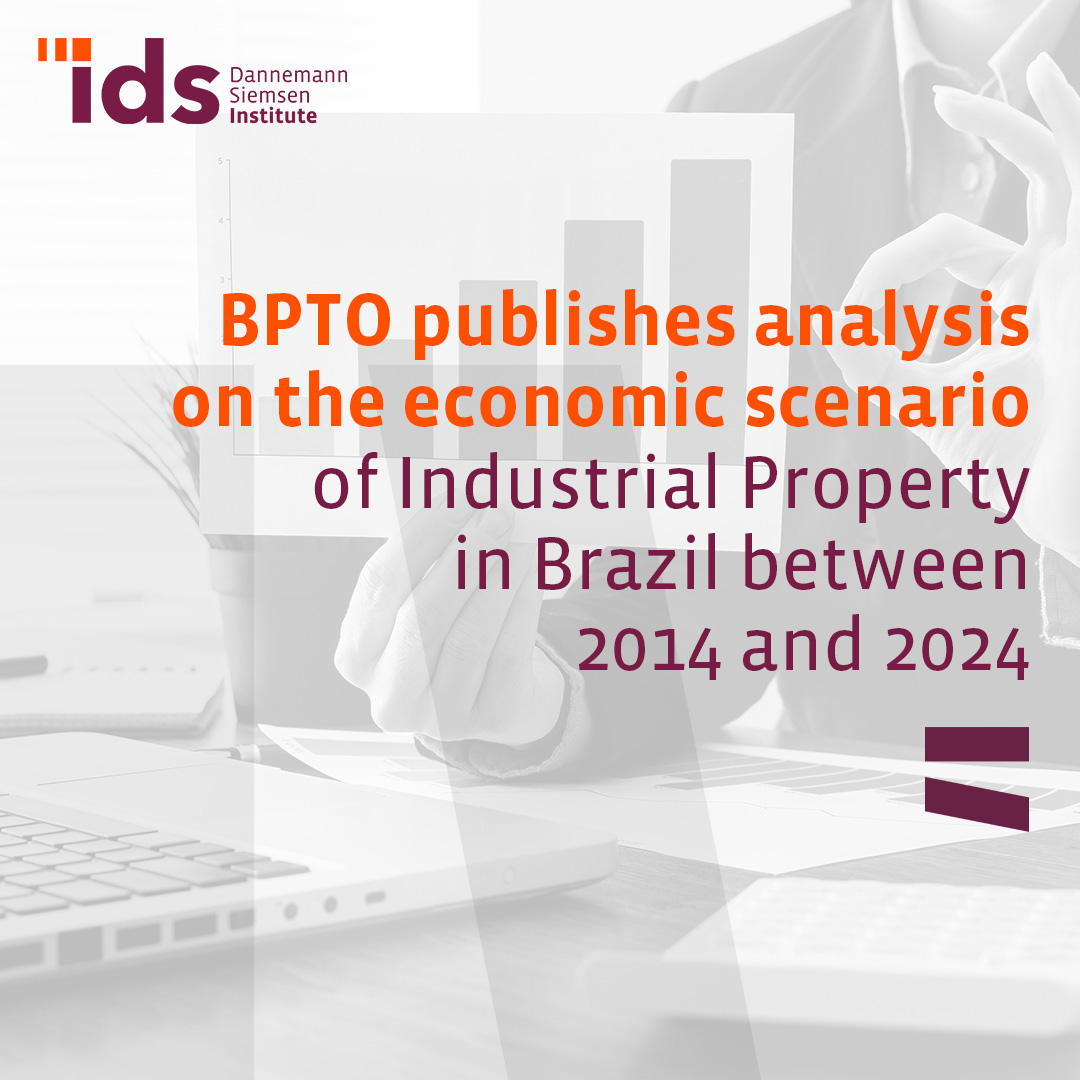19 de março de 2025
Share
BPTO publishes analysis on the economic scenario of Industrial Property in Brazil between 2014 and 2024
On March 12, 2025, the Brazilian Patent and Trademark Office (BPTO) released a detailed analysis of economic dynamics and industrial property in Brazil between 2014 and 2024. The study highlights how economic cycles and globalization have impacted the registration of industrial property (IP) assets, for example patents, trademarks and industrial designs, and how these effects are reflected in the applications and concessions in the country.
During periods of economic crisis, there was less investment in innovation, resulting in a decrease in applications for IP asset protection, for example in the years 2014-2016 and 2020-2021. On the other hand, times of stabilization and recovery have led to an increase in these investments, such as 2017-2019 and 2022-2024. Like economic cycles, globalization also has an impact on the number of applications for IP protection. The connection between the internal and external markets generates interest in international protection.
The survey found that between 2014 and 2024 patent applications fell by an average of 1.8% a year. However, patent concessions grew by an average of 19.9% per year, especially due to the positive impact of the Backlog Combat Program, which began in 2020 and will continue until 2021.
In the case of trademarks, there was a significant increase in applications, with an average annual growth of 10%, and in concessions, which grew by 9.5% per year over the decade analyzed. This increase was mainly driven by the expansion of e-commerce and Brazil’s adherence to the Madrid Agreement. In 2024, there was a drop in registrations due to the reduction in the number of examiners and the initial training time required for new staff.
Applications for industrial design registrations grew modestly, with an annual average of 0.7%, while concessions increased by 5.3% per year, driven by the fashion, furniture and electronics sectors. Computer programs, on the other hand, grew significantly, with an average increase of 13% in applications and 22.5% in concessions, as a result of the acceleration of digitalization and the emergence of new technological platforms.
On the other hand, requests and concessions for technology contracts have fallen, with annual variations of -6.2% and -7.9%. This reduction is attributed to the regulatory changes in force from 2024.
Finally, the study highlighted the significant growth of Geographical Indications, especially for traditional products such as wines, cheeses and coffees, boosting regional development, and exports, especially in states far from urban centers. As for Integrated Circuit Topographies (ICTs), although they have growing potential, registrations are still low due to the high investment costs in research and development in the microelectronics sector.
The report can be accessed via the link: Economic Scenario for IP in Brazil: 2014-2024
Note: For quick release, this English version is provided by automated translation without human review.
